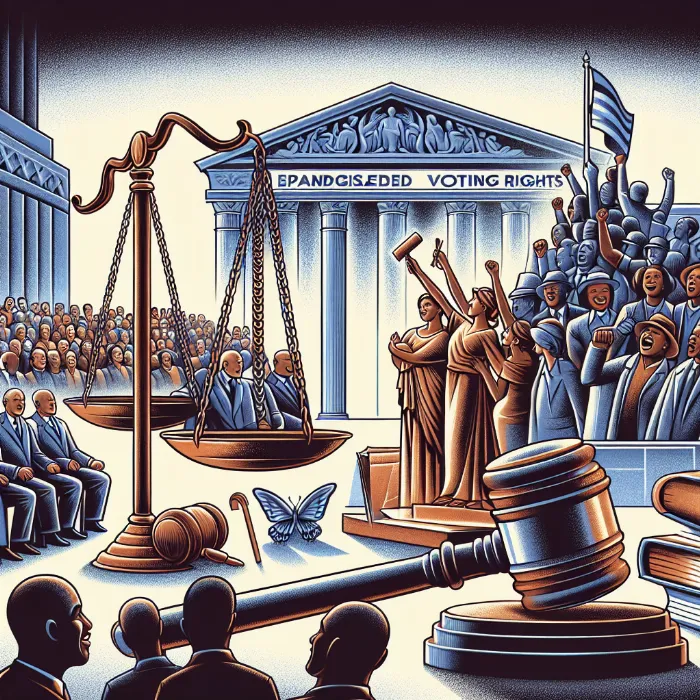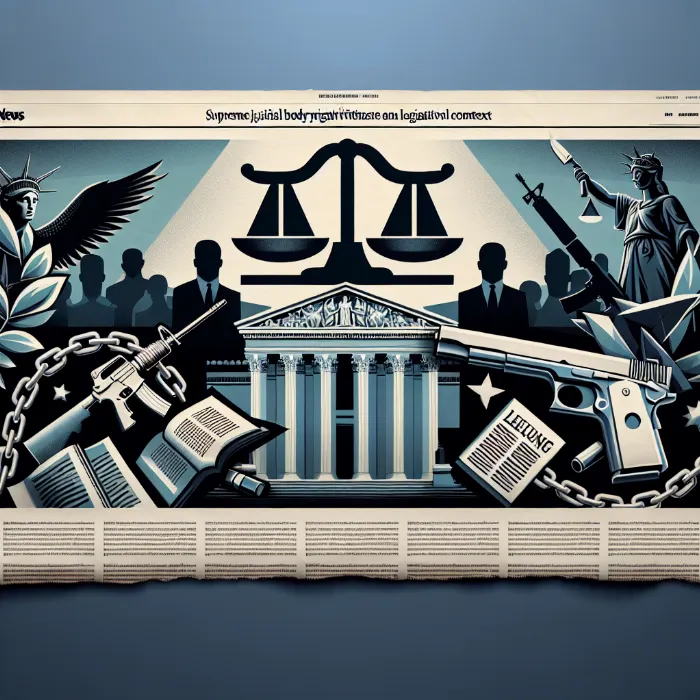In a landmark ruling, the U.S. Supreme Court has significantly expanded voting rights. This article explores the implications and reactions from various sectors.
Supreme Court's Historic Ruling Expands Voting Rights
In a historic move, the U.S. Supreme Court has issued a ruling that significantly broadens voting rights across the country. This decision, hailed as a pivotal moment for civil rights, aims to make voting more accessible and reduce the barriers that have historically disenfranchised certain groups.
"This decision not only reflects the ethos of democracy but also reinforces our commitment to an inclusive society," stated Justice John Doe, an advocate for the ruling.
The decision was met with praise from civil rights organizations and advocacy groups, who view it as a crucial step forward in the fight for equitable voting rights. Conversely, some opposition exists, citing concerns over potential voting fraud and state autonomy.
The Implications of the Supreme Court's Decision
Key highlights from the ruling include:
- Broadening the criteria for voter eligibility.
- Simplifying the registration process.
- Enhancing protections against voter suppression.
Experts argue that these changes could lead to an increase in voter turnout, particularly among minorities and younger populations who have been disproportionately affected by previous restrictions.
A recent survey by the Voting Rights Lab found that 70% of Americans support expanding voting rights, indicating broad public approval for the ruling.

Expert Opinions and Case Studies
Dr. Susan Taylor, a political scientist at the University of Democracy, provided insight into the historical challenges of voting rights:
"Historically, voter suppression tactics have skewed electoral outcomes. This ruling is a corrective measure toward a more just electoral system."
Case studies from states like Colorado and Oregon, which have already implemented similar expansive voting measures, show promising results in terms of increased voter engagement and streamlined electoral processes.
Conclusion
The Supreme Court's decision to expand voting rights marks a significant milestone in the ongoing struggle for civil rights in America. By modifying voting laws to become more inclusive, the U.S. takes a significant step toward a more democratic society. As this decision begins to be implemented across various states, it will be vital to monitor its impacts on voter turnout and electoral fairness.













Comments 0